The Equal Society
The Equal Society
Essays on Equality in Theory and Practice
Edited by George Hull
Lexington Books
Lanham Boulder New York London
Published by Lexington Books
An imprint of The Rowman & Littlefield Publishing Group, Inc.
4501 Forbes Boulevard, Suite 200, Lanham, Maryland 20706
www.rowman.com
Unit A, Whitacre Mews, 26-34 Stannary Street, London SE11 4AB
Copyright 2015 by Lexington Books
All rights reserved . No part of this book may be reproduced in any form or by any electronic or mechanical means, including information storage and retrieval systems, without written permission from the publisher, except by a reviewer who may quote passages in a review.
British Library Cataloguing in Publication Information Available
Library of Congress Control Number: 2015955900
ISBN: 978-1-4985-1571-9 (cloth : alk. paper)
eISBN: 978-1-4985-1572-6
 The paper used in this publication meets the minimum requirements of American National Standard for Information SciencesPermanence of Paper for Printed Library Materials, ANSI/NISO Z39.48-1992.
The paper used in this publication meets the minimum requirements of American National Standard for Information SciencesPermanence of Paper for Printed Library Materials, ANSI/NISO Z39.48-1992.
Printed in the United States of America
Contents
George Hull
Jonathan Wolff
Charles W. Mills
Miranda Fricker
Daniel Putnam
Bekka Williams
George Hull
Tom P. S. Angier
Lucy Allais
Thaddeus Metz
David Bilchitz
Daryl Glaser
Ann E. Cudd
Gina Schouten
Pierre-Yves Nron
All but two of the essays collected here were presented, in a previous incarnation, at a conference on equality at the University of Cape Town in August 2014.
Cape Town, like most South African cities, is a site of extreme, highly visible forms of inequalityas also of less visible, but no less insidious, forms. Several of the essays bear traces, in the examples offered and problems discussed, of this South African context. Philosophy cannot hope to solve the socio-political problem of inequality on its own. But it can attempt to articulate the variety of wrongful forms of inequality, and frame concepts, arguments and principles on which policy-makers and activists may constructively draw to address them.
My thanks to the contributors, and to the two anonymous reviewers of the collection. Thanks also to Jana Hodges-Kluck, Della Vache, Kari Waters and Rachel Weydert at Lexington Books, and Anita Singh at Deanta Global Pubblishing Services, who oversaw the project with patience and care.
The volume is dedicated to the organisers whose hard work and sound judgement made the Cape Town Social Equality Conference possible: Lara Davison, Cindy Gilbert, Liz Gubb, Khatija Haneef, Anna Hartford, Richmond Kwesi, Josh Platzky Miller, Amos Odhav and Gareth Smit.
Cape Town, November 2015 G. H.
George Hull
I
The idea of equality has been at the centre of thinking about social justice since the eighteenth century. Today it would be difficult to find anyone who was utterly opposed to the cause of equality. But there has never been consensus on how the content and practical implications of the idea of equality are to be spelt out; and so the manner in which it has informed both political philosophy and politics has shifted constantly.
In the 1980s and early 1990s, political philosophy was dominated by, on the one hand, the multifaceted conflict between liberals and communitarians In the last two decades, by contrast, three new tendencies have come to the fore, each with a direct bearing on equality.
Firstly, participants in the long-standing debate about the currency of egalitarian justice
Secondly, an increasing amount of philosophical attention has been paid to the distinctive forms of inequality or disadvantage experienced by particular societal groups. While there has been a feminist current within political
Thirdly, a growing number of philosophers now resist thinking of equality as primarily a distributive ideal, insisting that it is principally a matter of what kinds of relations members of society stand in, and what kinds of attitudes they express, to one another. From the second half of the 1990s, writers including David Miller,
As one would expect, these three new tendencies in political philosophy are partly reactions against earlier trends. Social egalitarians have developed their ideas most eloquently in polemics against the pervasive luck egalitarianism of the 1980s, in which they condemn the humiliating policy rationales and disrespectful tests flowing from an egalitarianism whose guiding aim was to compensate bad brute luck and natural incompetence.
But there are also elements of continuityincluding some unexpected ones. For example, social egalitarians emphasis on the importance of inclusion and solidarity has clear affinities with the communitarian critique of liberal individualism
In addition to the three tendencies discussed above, political and social philosophy has seen a marked methodological shift in the last two decades. A growing number of philosophers working on social justice and related areas now think that it is often, or even always, inclusionand conceive of negative conditions derivatively, as the lack of a positive.
Three of the essays collected here explicitly endorse this shift towards a methodological negativism , offering interestingly different justifications for it. Charles W. Mills, in Chapter 2, writes that the problem with focusing on the positive social condition, as Rawlsian ideal theory does, is that the normative target becomes too distant to serve as a useful guide.one cannot fully understand social virtues such as justice without an understanding of the threats, endemic to human nature in circumstances of (moderate) scarcity, which they guard the body social against.
Neither Mills nor Frickers defence of methodological negativism suggests that ideal theory is fundamentally wrongheaded; rather, both simply believe that it needs supplementing with analysis of negative social conditions if it is to be complete or practically relevant. By contrast, Jonathan Wolff argues in Chapter 1 that, at least for theorists sympathetic to social egalitarianism, attempting to describe the ideal society would be a serious methodological error. This is because, according to Wolff, the ideal of social equality exhibits multiple realizability. Societies which differ greatly from each other, such as Quaker Society, a Kibbutz, and a 1960s Californian Hippy community, which a society of equals would manage to avoid.
II
The new essays on equality collected in this volume all either exemplify, or critically engage with, at least one of the three tendencies outlined at the beginning of the previous section.
The nine essays in Part I are relatively abstract discussions of topics in egalitarian theory, including epistemic equality, social equality, the currency of egalitarian justice, rectificatory justice, and the capabilities approach. Some propose ways in which current egalitarian theory needs to be expandedwhether in light of social phenomena such as poverty and the legacy of racism, or to accommodate insights from sources such as sub-Saharan African ethics and the thought of Immanuel Kant. Others critically discuss current theoretical approaches to equality, arguing for revisions of doctrine or methodology.
Part IIs five essays put philosophical thinking about equality to work, applying it to a number of concrete social and political issues. These range from the gendered division of labour, through higher education, workplace democracy and race redress in South Africa, to the design of political constitutions in the global South.
Four of the essays in this volume have social equality as their principal focus. Jonathan Wolffs Social Equality, Relative Poverty and Marginalised Groups draws on empirical studies of relative poverty in order to flesh out forms of social exclusion which constitute failures of social equality. Whereas absolute poverty is the condition of lacking the resources necessary to avoid a high risk of being physically debilitated, relative poverty is the condition of lacking the resources necessary to take part in the ordinary and customary living patterns of ones society. Wolff argues that it is not enough for social egalitarianism simply to stipulate that no one should live in relative poverty, since a society will often exhibit various differentsometimes incompatiblecustomary patterns of living: some specific to sub-groups within the society, and some associated with the societal mainstream. This means that people will often utilise resources in a way which means they do not suffer relative poverty in the context of their sub-group, but which precludes them from fitting in to the mainstream. Wolff argues that if a society is to move in the direction of social equality, it must do more than ensure that its citizens are capable of participating in the customary living patterns of some sub-group within society. On top of this, if it is to avoid being exclusionary, it must ensure that the steps necessary for citizens outside the mainstream to move into the mainstream are not so costly or so risky as to count as an irrational investment.
Next page
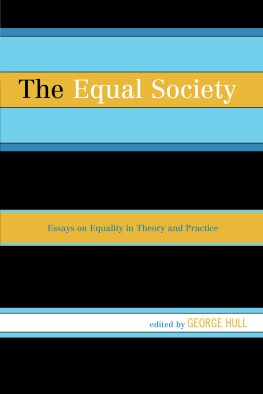
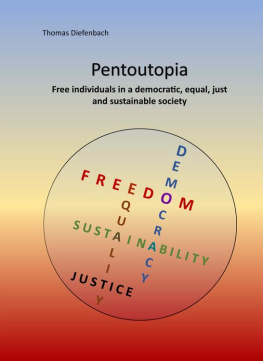
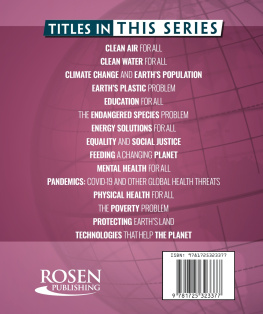
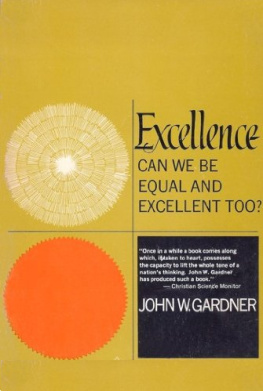

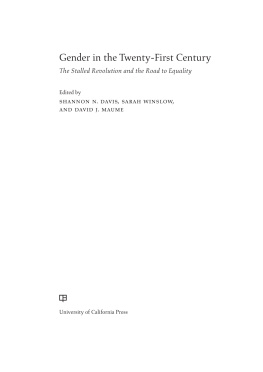
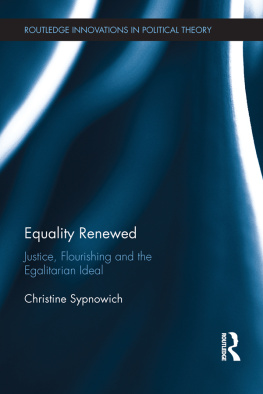
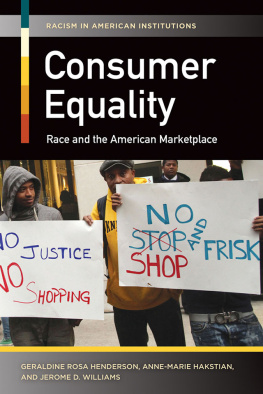


 The paper used in this publication meets the minimum requirements of American National Standard for Information SciencesPermanence of Paper for Printed Library Materials, ANSI/NISO Z39.48-1992.
The paper used in this publication meets the minimum requirements of American National Standard for Information SciencesPermanence of Paper for Printed Library Materials, ANSI/NISO Z39.48-1992.